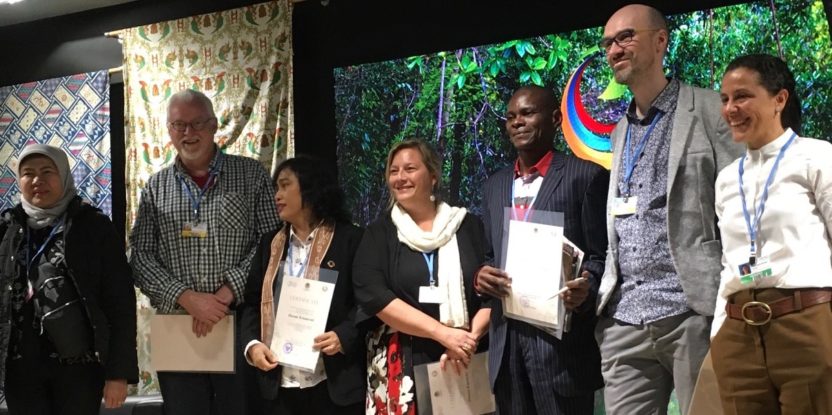
At U.N. climate talks in Madrid, Indonesia, which has committed to restore 2.4 million hectares of drained peatlands, presented various strategic approaches to conservation, restoration and sustainable management.
Its centrally located pavilion attracted a broad range of speakers from the global peatlands and environmental communities. Even Former U.S. Vice President and 2007 Nobel Peace Prize laureate Al Gore stopped by to deliver a motivational talk in his capacity as founder and chair of The Climate Reality Project.
Indonesia, considered a leader in peatlands research, is part of the Global Peatlands Initiative (GPI) and is the founding country of the International Tropical Peatlands Center (ITPC), which includes the Democratic Republic of Congo, Republic of Congo and Peru.
Working alongside coordinating partners, which include the Center for International Forestry Research (CIFOR), the U.N. Environment Programme and the U.N. Food and Agriculture Organization, through the ITPC, Indonesia is taking a pro-active approach to restoring and protecting its peatlands, said SPM Budisusanti, Director for Peatland Degradation Control in the Ministry of Environment and Forestry.
Of 180 peatland-containing countries, Indonesia has the third largest area of the boggy ecosystems, after Canada and Russia. The archipelago also features the largest tropical peatland area in the world.
Worldwide, peatlands make up more than half of all wetlands. They are equivalent to 3 percent of total land and freshwater surfaces. Built up over thousands of years from decaying and waterlogged vegetation, they store a third of the world’s soil carbon and 10 percent of global freshwater resources, according to the International Mire Conservation Group and the International Peat Society.
Although they are vital carbon sinks, Wetlands International reports that 15 percent of peatlands have been drained for agriculture, commercial plantations and for fuel extraction, which leads to oxidization and carbon release into the atmosphere, causing global warming.
We want you to share Forests News content, which is licensed under Creative Commons Attribution-NonCommercial-ShareAlike 4.0 International (CC BY-NC-SA 4.0). This means you are free to redistribute our material for non-commercial purposes. All we ask is that you give Forests News appropriate credit and link to the original Forests News content, indicate if changes were made, and distribute your contributions under the same Creative Commons license. You must notify Forests News if you repost, reprint or reuse our materials by contacting forestsnews@cifor-icraf.org.